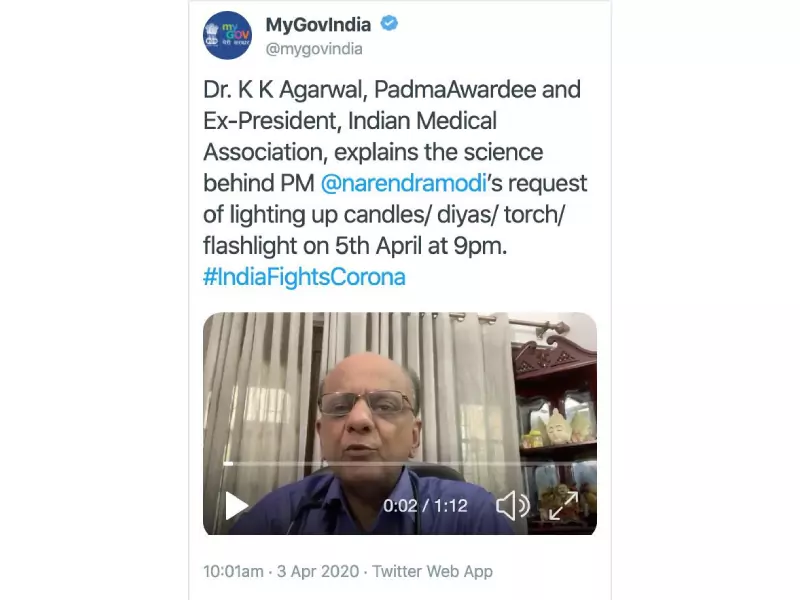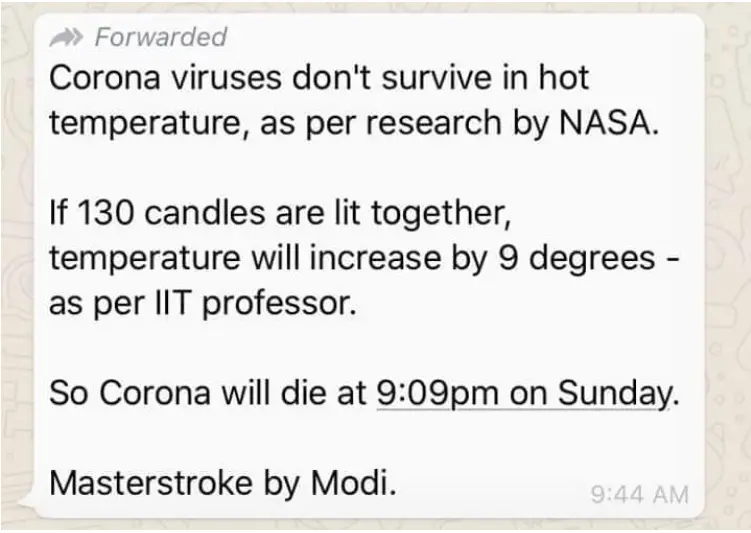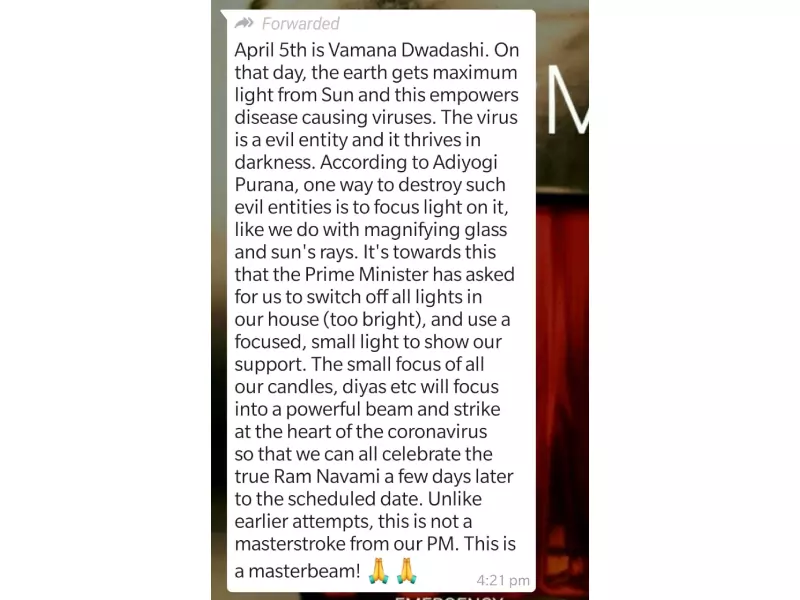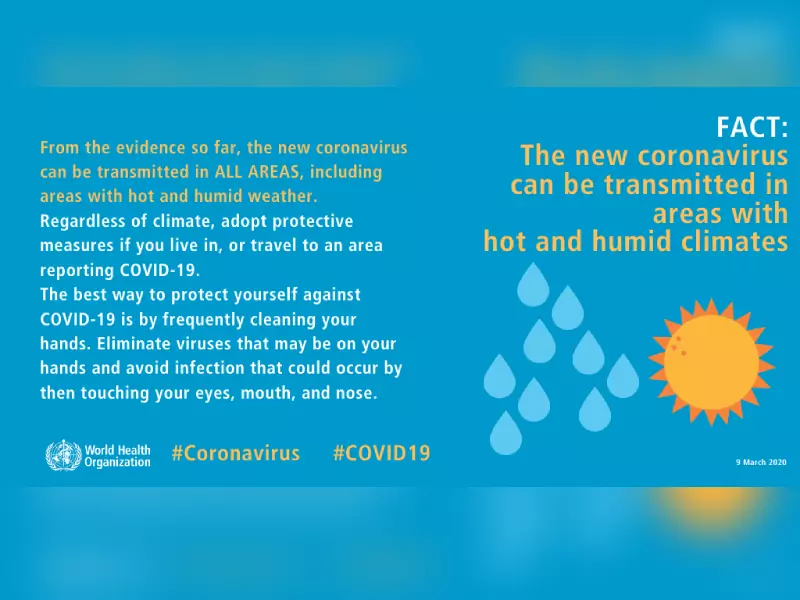Fact Check: Does heat generated from candles kill Coronavirus?
By Dheeshma Puzhakkal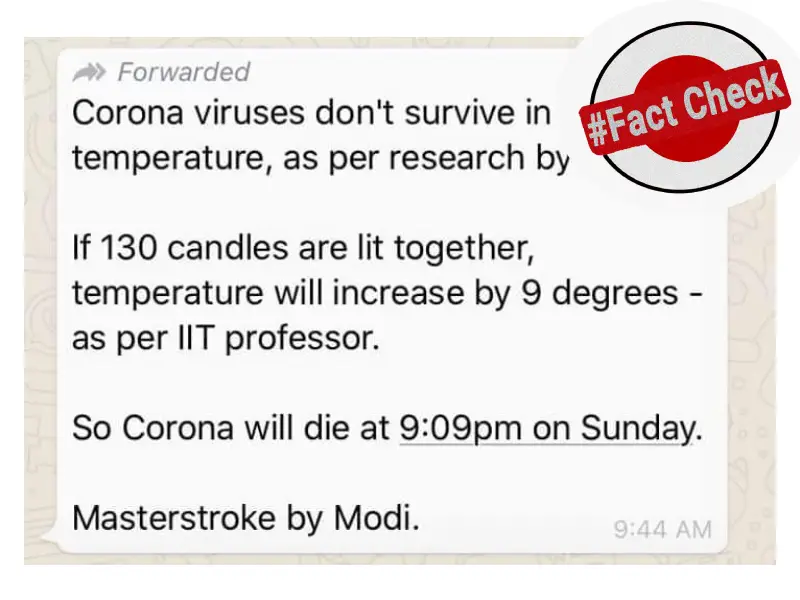
Hyderabad: On 3 April, Prime Minister Narendra Modi addressed the nation and asked people to give him nine minutes of their time at 9 p.m on Sunday to end the "darkness" of COVID-19 by lighting candles or flashing torches, mobile phones from their doors or balconies.
In this context, messages have been going viral on various social media platforms, including WhatsApp and Twitter, claiming that Coronavirus cannot withstand high temperature according to research by NASA, which is why the Prime Minister had asked people to light candles.
A video by KK Agarwal, Former President of the All-India Association of Doctors (IMA) claiming lighting lamp will prevent the spread of coronavirus in the body was tweeted by an official twitter handle of Indian government. The tweet was later deleted.
One of the WhatsApp forwards with a similar claim reads. "Coronavirus doesn't survive hot temperature as per research by NASA. If 130 candles are lit together, temperature will increase by 9 degrees- as per IIT professor. So Corona will die at 09:09 pm on Sunday. Masterstroke by Modi. It is believed that Coronavirus cannot survive in high temperatures. Imagine the amount of heat produced when 130 crore Indians will be burning candles together. Temperature will be increased in atmosphere and hence Coronavirus will die,"
Another message reads, "April 5th is Vamana Dwadashi. On that day, the earth gets maximum light from Sun and this empowers disease causing viruses."
Fact Check
Health experts have repeatedly asserted that there is no definite answer on the influence of summertime temperatures on COVID-19.
Rakesh Mishra, the director for Centre for Cellular and Molecular Biology (CCMB) Hyderabad said, "PM might have told this to make people feel that we are doing something collectively as a society. Lighting lamp will lot increase temperature to any significant level. Since the PM asked to switch off all the lights the temperature might in fact go down. Corona will certainly not disappear by lighting a lamp. It is still a speculation that an increase in temperature can kill Corona. Temperature will not rise in places where people leave. How many people live in 45 degree, very few. People mostly stay indoors where the temperature will be maximum around 30 degrees. Remember, Coronavirus spread from individual to individual. If an infected person stands among a crowd of 20 people and sneezes, within less than one minute all the 20 might get infected. Coronavirus doesn't care about the outside temperature. It's your body temperature that matters and it's always between 30-70 degrees.
The World Health Organization (WHO) explains on its "myth busters" page that there is no evidence that high temperature eliminates Coronavirus. "From the evidence so far, the new Corona virus can be transmitted in all areas, including areas with hot and humid weather," WHO said.
Different experts have varying views on whether sunlight and heat can limit the growth and longevity of the virus. However, the Corona virus is known to be sensitive to three things, sunlight, high temperature, and humidity, While some argue that sunlight affects the ability of a virus to grow while heat deactivates it, David Heymann at the London School of Hygiene and Tropical Medicine is not quite in favour of this argument.
Science and technology magazine New Scientist quotes Mr Heymann while referring to the MERS Coronavirus spread in Saudi Arabia in August. "These viruses can certainly spread during high-temperature seasons," he says.
However, exactly how long Corona virus can survive outside the human body is still unclear. Some studies on other Corona viruses, including Sars and Mers, found they can survive on metal, plastic and glass for as long as nine days unless they are disinfected.
But the NIH study found that the Sars-CoV-2 virus survives for longer on cardboard – up to 24 hours – and up to two or three days on plastic and stainless-steel surfaces.
A study published in the New England Journal of Medicine shows viruses circulating in 'unfiltered air conditioning systems' will only persist for a couple of hours at the most, and tend to settle on surfaces faster in disturbed air.
Although research has shown that a related Corona virus that causes Sars could be killed by temperatures above 56°C or 132°F (hotter than even a bath scalding enough to cause injury) at a rate of about 10,000 viral particles every 15 minutes, scientists are still watching whether or not the novel Corona virus will be affected by temperature.
Result
Therefore, the claim that high temperatures will kill Corona virus is FALSE.
